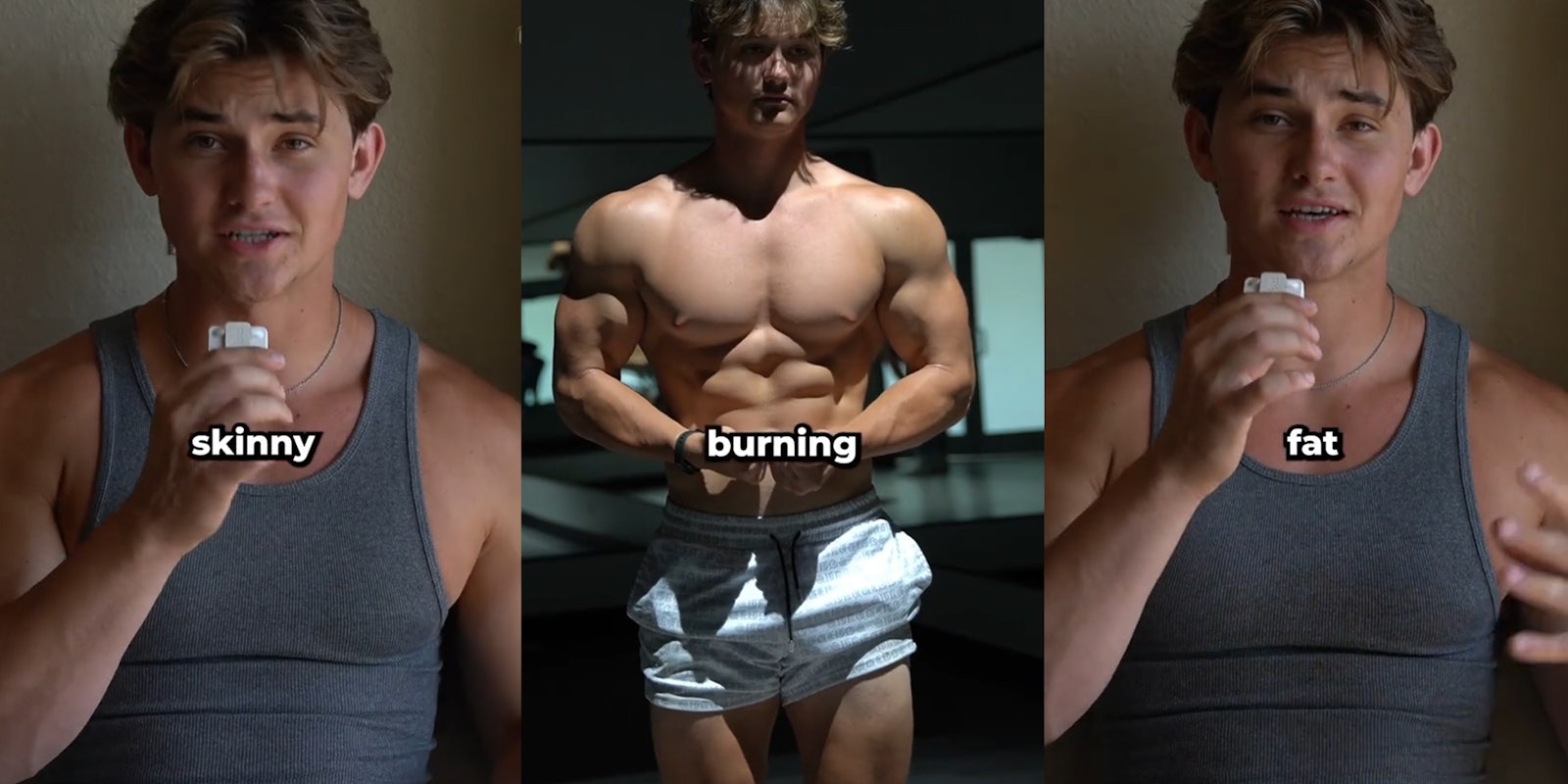In each edition of web_crawlr we have exclusive original content every day. On Tuesdays our IRL Reporter Tricia Crimmins breaks down the trends on the popular app that will make you cringe in her “Problematic on TikTok” column. If you want to read columns like this before everyone else, subscribe to web_crawlr to get your daily scoop of internet culture delivered straight to you inbox.
When I heard the words “you’re skinnyfat and you don’t know what to do!” while scrolling TikTok, I thought I’d landed on the wrong side of the app. As a survivor of multiple eating disorders, I don’t engage with weight loss or body transformation content on principle.
But then I spotted TikTok’s “stitch” feature. I hadn’t ended up on the wrong side of TikTok—my FYP had served me a stitch of the seemingly toxic diet-focused video, not the video itself.
“Being skinnyfat is the worst possible situation to be in,” fitness TikToker Dylan O’Brien says in his video about being thin but having low muscle mass.
And that’s when the stitches begin. O’Brien’s video went viral last month for his hyperbolic language about “being skinnyfat,” and TikTokers are still reminding him of things that are worse than an ultimately (still) privileged body composition and size.
“Have you ever heard of, like, the Holocaust?” Ziggy Tyler says in their now-deleted stitch of O’Brien’s video.
“If you’d asked me what’s worse: Being skinnyfat or slavery? I’d choose skinnyfat,” TikToker @iamizaiahhh says in their (extremely satirical) response to O’Brien.
Another TikToker described a human being deep-fried alive, which she then jokes is not even as bad as “being skinnyfat.”
And one TikToker made lists of things that are actually worse than “being skinnyfat”: awkward silence, backing into a parking spot, the last few days before payday, fender benders, and people who point out your insecurities.
Why it matters
Needless to say, “being skinnyfat” is not the worst possible situation to be in. Not only, as described by many TikTokers, are there far worse situations to be in, it’s also perfectly okay if your body isn’t at a peak performance level or doesn’t subscribe to society’s rigid beauty standards.
O’Brien’s video reminded me of Jia Tolentino’s essay “Always Be Optimizing” in her best-selling book of essays, Trick Mirror. In it, Tolentino talks about the ways that women are pressured to constantly be and present themselves as the “best” version of themselves possible, and that “best” usually centers around food and exercise. She makes the observation that it’s no longer adequate to have professional success, we are also asked to look the part and juggle an immense amount of body and weight maintenance habits to truly be ideal and well-rounded.
Though O’Brien’s video isn’t focused on one gender, it certainly communicates this idea that your body could be “better” than it is, even if you live in a body that benefits from the full range of thin privilege.
But fat bodies, skinny bodies, and skinnyfat bodies are all worth the same. And in the end being stronger or exercising more than others doesn’t make you better than anyone else.


